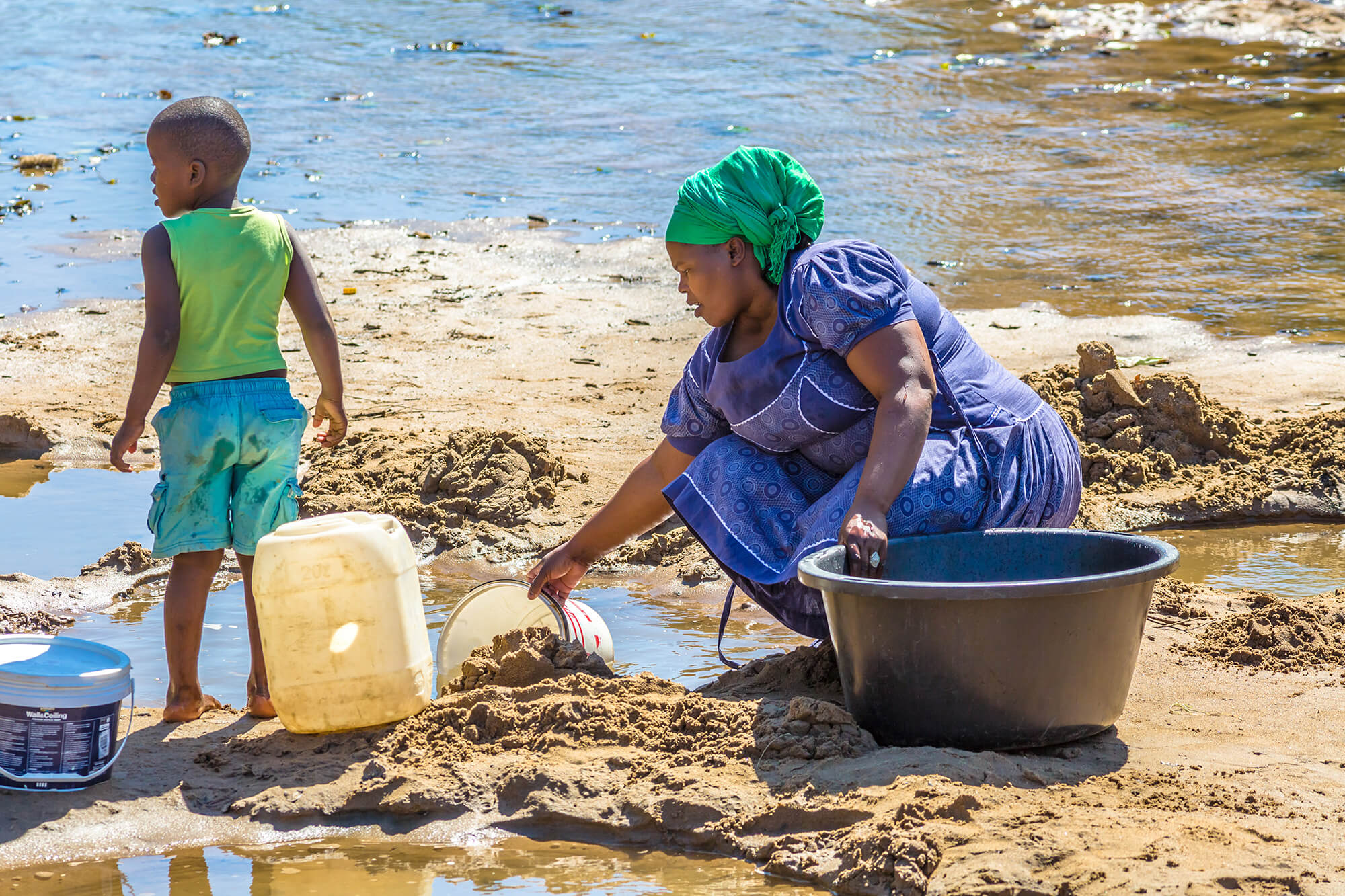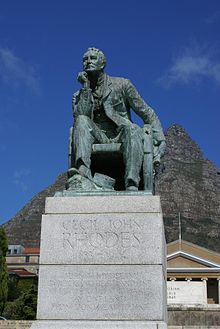Photo: South Africa – August 24, 2014: African woman with child collecting water from the river on the road leading to local Game Reserve.
He is generic Africa Man. You can see him everywhere, walking barefoot across the Savannah and desert landscapes. He is on a mission that gets harder as time goes on.
His mission is to find enough wood — a few dry sticks here, some roots there — to make a fire for a hot meal and to bathe. He walks and walks, adding a stick and a piece of scrub wood to the bundle carried, in the traditional way, on his head.
Generic Africa Woman is busy, too. Her mission is to draw water. She carries a container on her head, filled with water from a distant well, to make dinner — a meal of maize (corn) porridge with maybe a stew of some meat or even caterpillar — and to bathe.
African life is picturesque, but it is not pretty. Hardship is in daily attendance in much of Africa, blighted from deforestation and polluted water.
Yet Western aid has not been easily delivered. Much of it has been stolen, some of it has been misapplied and some of it has led to aid dependency.
So, as an old Africa hand (I was born in what is now Zimbabwe, and left when I was 20 years old), I was elated to learn of a new and critical partnership just announced between the Edison Electric Institute (EEI) and the U.S. Department of State’s Power Africa initiative. Electricity anywhere is the gift that gives and gives, but especially when it begins to transform lives of hard struggle to ones that are less so.
When I was a boy, the opening of a power station or the building of a power line were events that brought forth celebration. Electricity signaled a better tomorrow.
When a village — whether it is in Bolivia, India or Uganda — is electrified, good things flow. A simple hotplate replaces days of firewood collection and those who can read can do so after the sun sets: hygiene improves, education is facilitated and expectations soar.
When the shantytowns that surround Johannesburg, South Africa, were electrified, the productivity of workers who flood into the city every day went up. Simply, they were saved from the drudgery of collecting animal droppings, wood scraps and other combustible stuff to burn.
The colonizers of Africa realized the need for electricity. Hence, in my part of the continent, two great dams were built on the Zambezi River: the Kariba, between Zimbabwe and Zambia, and the Cahora Bassa in Mozambique.
As a very young reporter, I covered the construction of the Kariba Dam, and its near destruction by unusually heavy flooding, in 1957. It has been the backbone of electricity supply for Zimbabwe and Zambia for more than 50 years.
But in recent years the dam, holding back the world’s largest, man-made impoundment of water, has begun to show deterioration in the concave wall, but especially behind the wall. The outflow has been eroding the plunge pool and threatening the wall. Hundreds of millions of dollars have had to be raised internationally for remediation, which is yet to begin in earnest. If the dam should fail, about 4 million people would die downstream.
The dam also has been producing much less electricity than it had been previously due to multi-year drought in the region. Copper production in Zambia, a vital industry, has had to be curtailed because of severe electric shortages. Blackouts are routine throughout the region.
Electricity is also a problem in South Africa, the industrial and commercial giant of Africa. Delay in ordering new generation, political interference in the decision processes and other problems, stemming from the end of apartheid, have damaged the system. Blackouts are affecting South Africa’s competitive posture.
Now the government is being romanced by Russia, hoping to sell it a new nuclear plant on favorable terms. It would join the two-unit, 1,860-MW Koeberg Nuclear Power Station, which has been operating since 1984. Unfortunately emerging countries have a fascination with big, showy projects, like the national airlines and steel mills that have cost them so dearly in their post-colonial phase.
EEI and the State Department need to guide the countries of Africa to today’s energy solutions, not yesterday’s. Africa needs to turn to its most abundant resource: sunshine. In North Africa, Morocco is building the world’s largest solar installation. Way to go.






